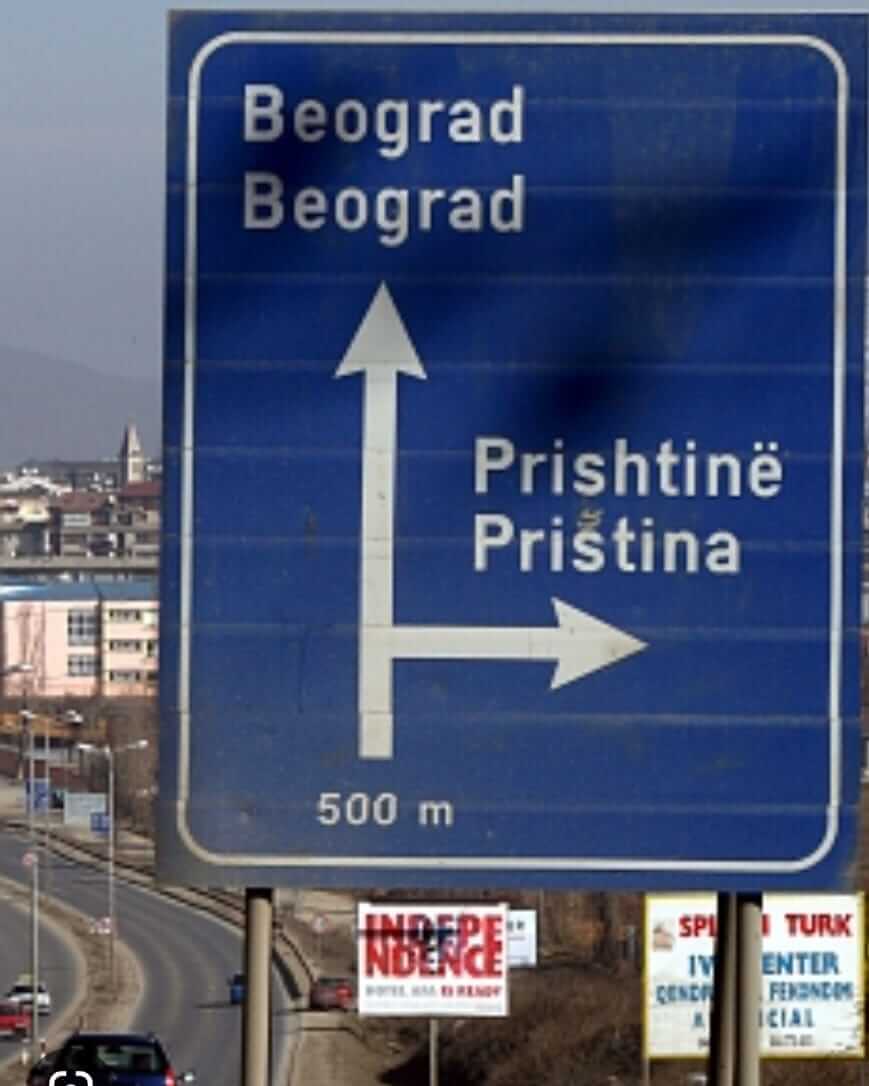Vučić’s critics were malicious before he left for the meeting in Brussels, and sadistic when he returned and explained the situation regarding Kosovo on RTS. As members of the opposition, they have been waiting for this moment for ten years, hoping that only Kosovo has a calibre large enough to overthrow Vučić.
Before that, while they were in power together, or one by one, they treated Kosovo as chargés d’affaires. It was important for this moment that is happening to Vučić to not happen during their shift.
Since 1999, the Serbian policy in relation to Kosovo has been one of rejection. The Rambouillet agreement, a few years later Ahtisaari’s plan, and then the German request to shut down the so-called parallel Serbian institutions have been rejected. Serbia said what it did not want, and rarely or never – what it wanted with Kosovo.
Each of these rejections had consequences, simply because every decision in life has consequences for the person who makes it, good or bad. The rejection of Rambouillet agreement resulted in the bombing, the rejection of Ahtisaari’s plan resulted in the declaration of Kosovo’s independence, and because of the rejection of Angela Merkel (in fact the entire EU), Boris Tadić lost power.
Vučić’s shift regarding Kosovo was essentially very simple. It was an attempt to create a policy after “we know what we don’t want” on the basis of “we know what we want from what is possible”.
And surprisingly, this policy of positive determination, not rejection, pushed its opponents to start saying what they really want with Kosovo. However, what they want has been beyond the realm of possibility. When politics leaves the realm of possibility, then it ceases to be politics.
The alternatives offered ahead of, and particularly after Vučić’s meeting in Brussels, are not new, and this is the biggest tragedy for their proponents. Let’s ignore the big and furious cries, such as high treason, the ruin of Serbia and similar.
The political content of everything we heard from the opposition, the largest part of it, is terrifying. It is a set of “solutions” that, in the case of Kosovo, the state of Serbia has already tried at least once, in the near or distant past, none of which brought a good result for Serbia.
On the contrary, they led from one disaster to another, with a decreasing number of options (sphere of the possible). From 2008 onwards, the number of those options has been very close to zero.
Now those solutions are coming back into play. They are offered by Vučić’s alternatives, party leaders, intellectuals close to them, lawyers, experts, and people who at least once had the opportunity to offer a solution, but always decided on – rejection. These options are tragic, because they want to reach a different result by repeating the same action. In psychiatry, they take this kind of behaviour under their jurisdiction.
For some time now, right-wing parties have gathered around a “state-building” project that seeks the reintegration of Kosovo into the constitutional and legal order of Serbia. This policy is possible, admittedly only through war but let’s allow it to remain in the sphere of the possible.
The problem with it (besides the national tragedy) is that Serbia has already tried that option once. It did not succeed, and it was tragically crushed, so the question arises – what has changed in the meantime for it to be successful now? Or is it just a matter of repeating the same action from which a different result is expected.
Policies that emerged from the once ruling Democratic Party have been horrified by Vučić’s agreements in Brussels. They believe that those agreements represent the recognition of Kosovo and opening the door wide to its membership in the UN. According to them, Community of Serb Municipalities is nothing compared to what the Kosovo Serbs had in their time.
This option has already been tried, in a whole series of rejections of international arrangements (Rambouillet, Ahtisaari) which also brought enormous damage to Serbia. The repetition of these ideas is, again, symptomatic from the point of view of psychiatry.
As much as they resemble the rejection policies of the past, these are still attitudes – for something. These are requests to return things in Kosovo and in connection with Kosovo to the years before the bombing, before Rambouillet and Ahtisaari, before the Contact Group and its “guiding principles”, before thousands of dead and hundreds of thousands of displaced people.
These alternatives do not affect living people – both Serbs and Albanians. They do not take into account their desires and fears. In the end, they were displaced not only from the reality of Kosovo, but also from the reality of Serbia itself.
If they were to come true, a simple calculation would show the mathematical expression of Serbia’s historical downfall. The recent European Union gift of 600 million euros (plus a good loan of 1.6 billion) for the Niš railway would also be included in that calculation.
Thousands of artisans, health workers, restaurant owners, and IT experts, who would have to quit their jobs somewhere in Europe and return to the country, because visas would be reintroduced, would also be included. Hundreds of thousands of families who would be left without a livelihood, because their European employers would move out of Serbia, along with their companies, would also be included. For a high treason trial, which they wish for, there would probably be no electricity in the court, or money in the budget for the salaries of judges and their associates. These are the consequences of alternatives that we have already tried, and since the last meeting in Brussels, they are being offered to us again. When they were current for the first time, their idea was – Kosovo in Serbia, but without Albanians. Today, when they appear again, they have the same idea, but also a new consequence – Serbia without its citizens.
